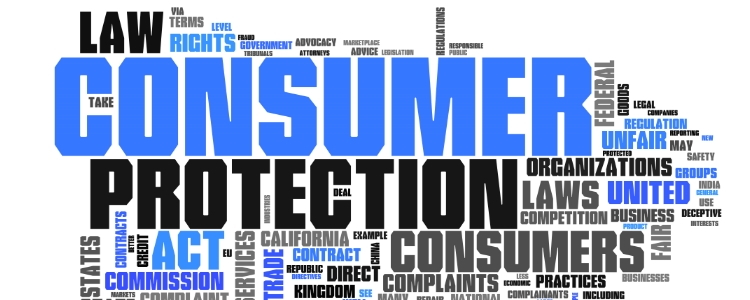Federal Consumer Protection Laws to Know

There are plenty of protections in place to ensure that consumers who take out auto loans are treated fairly and not taken advantage of through predatory practices. These laws give consumers certain rights and offer important information that can help them better understand the process.
Since state legislation can vary so widely, we will focus on some of the key federal consumer protection laws that concern the auto financing process. Federal consumer protection laws are mainly enforced by the Federal Trade Commission, the Consumer Financial Protection Bureau, and the U.S. Department of Justice.
Here are a few of the main ones to familiarize yourself with:
- The Equal Credit Opportunity Act
This act prohibits discrimination related to credit on the basis of: gender, race, color, marital status, religion, national origin, or age. It also forbids credit discrimination based on the fact that a person is receiving public assistance (although auto lenders will still have income requirements and stipulations that an applicant must meet). The Equal Credit Opportunity Act also requires lenders to provide consumers with information if they deny them financing or take other adverse action. - The Fair Credit Reporting Act
This act gives consumers the right to an annual, complimentary copy of their credit report from each of the three nationwide credit bureaus - Equifax, Experian and TransUnion. It also gives them the right to dispute any information on them that they believe is inaccurate or incomplete. If a lender uses a consumer's credit report and credit score as reason for denying them the loan, this act also requires that they provide the applicant with a report and score. Because of how lenders scrutinize your credit reports during the auto loan decision process, we recommend that you always monitor your credit and make sure that all information on your reports is accurate. Anything you can do to improve your standing may end up making a worthwhile difference. - The Truth in Lending Act
This act requires creditors to give consumers written disclosure of important terms of the loan before they sign. This includes the APR, finance charge, monthly payment amount, payment due dates, amount financed, length, and any charges for late payment. The key word here is "written;" no word of mouth promises will do. You should receive a Truth in Lending Disclosure Statement at some point during the process (usually this is part of the finance contract), and you are going to want to read it carefully. This act makes it easier for consumers to make informed decisions and compare offers when shopping for credit. - The Risk-Based Pricing Rule
This rule requires lenders to provide a Credit Score Disclosure Notice if a consumer receives less favorable terms than other borrowers with better credit histories. This notice contains the consumer's credit score and additional information to put the score in context - such as the range it fell under and the negative factors affecting their rating.
There are many, many other laws out there that work to protect consumers, but these are the main federal ones concerning auto financing. As for laws at the state level, they cannot take any federal protections away, but they may add benefits of their own. For more information on your state's specific laws, you can contact your local consumer protection agency or state attorney general's office.
The More You Know, the More Ready You'll Be
It never hurts to be extra careful and extra prepared when you are seeking auto financing. While the consumer protection laws in place will provide a buffer, you should still do as much research as possible before you head to the dealership.
Consumers would be wise to read up on such laws, know their credit score and the general interest rate that it qualifies them for, read everything carefully before signing anything, and make sure they are paying for only the things they want. And if you feel like you have been the victim of shady lending practices, you can file a complaint with your state's attorney general's office or consumer protection agency.
And if you are looking for auto financing and have less than perfect credit, you should also know that Auto Credit Express specializes in helping you find it. We have a nationwide network of car dealers who know how to handle unique credit situations and will do everything they can to get you approved.
If you are serious about wanting to get approved for an auto loan and get your credit back on track, simply complete our secure online application. It only takes a few minutes of your time and the sooner you apply, the sooner you could be driving off the lot in your next car.
















